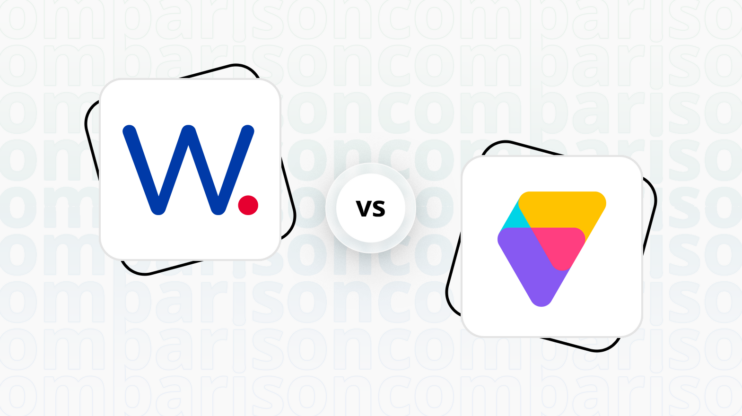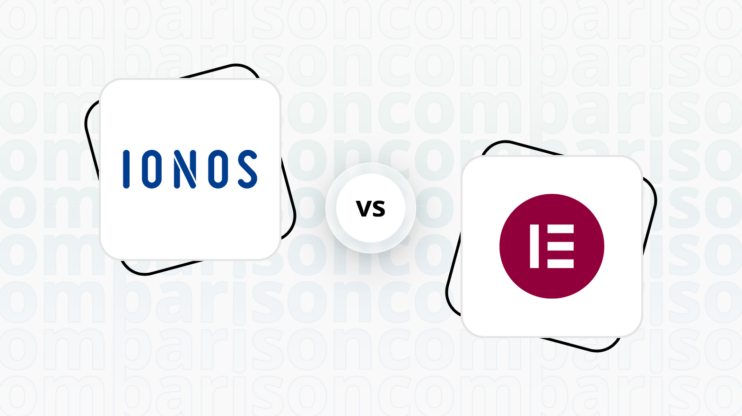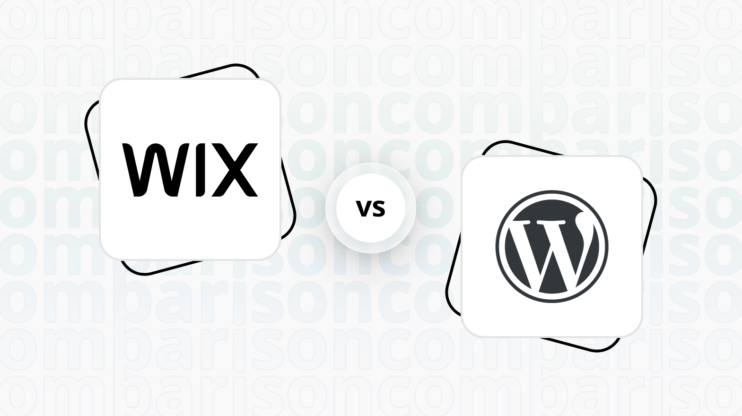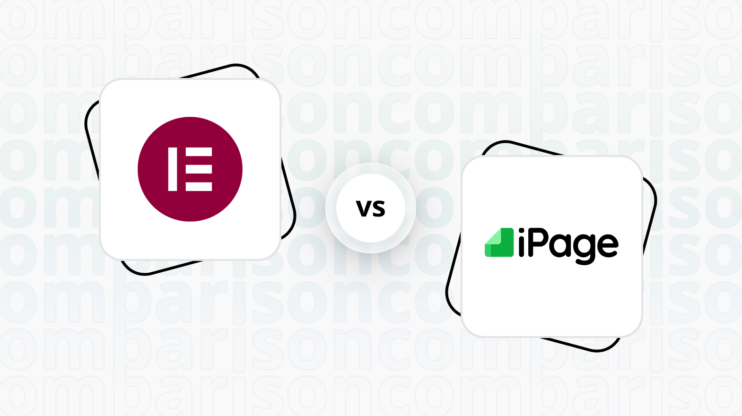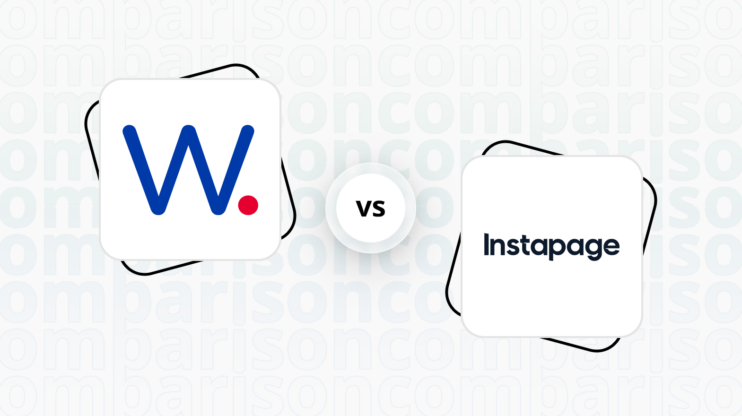Final verdict
Adobe Portfolio and iPage cater to different user needs, with Adobe Portfolio focusing on creative professionals and iPage targeting small businesses and personal projects.
-
Adobe Portfolio (Overall Grade: 5.5/10)
is designed for creative professionals such as photographers, graphic designers, and artists. It offers a user-friendly interface, seamless integration with Adobe Creative Cloud, and a variety of responsive templates tailored to showcase creative work. However, it lacks ecommerce capabilities and advanced customization options, making it less suitable for users looking to build an online store or require extensive design flexibility. -
iPage (Overall Grade: 6.1/10)
provides a comprehensive web hosting and site builder platform ideal for small businesses and personal projects. It offers a wide range of templates, a drag-and-drop builder, and essential ecommerce features. iPage excels in hosting quality, website speed optimization, and marketing features, making it a versatile choice for users seeking an all-in-one solution for their online presence. However, it may not offer the same level of design sophistication and creative control as Adobe Portfolio.

|

|
|
|---|---|---|
|
Design functionalities & templates |
7.4 |
7.0 |
|
Ease of use |
8.7 |
7.6 |
|
Ecommerce |
0.0 |
5.7 |
|
Website Editors |
7.4 |
6.8 |
|
Product testing options |
7.6 |
2.5 |
|
Price |
7.7 |
7.3 |
|
Hosting quality |
7.0 |
7.7 |
|
Website speed optimization |
6.2 |
7.4 |
|
Plugins and integrations |
6.7 |
6.3 |
|
Marketing features |
3.7 |
7.2 |
|
Customer support |
7.3 |
6.9 |
|
Security |
8.1 |
7.5 |
|
AI capabilities |
0.0 |
3.0 |
|
User Management |
3.0 |
3.2 |
Best for ecommerce
 0.0
0.0
 5.7
5.7
Verdict
: Adobe Portfolio is not suitable for ecommerce, while iPage offers basic ecommerce features for small to medium-sized businesses.
-
Adobe Portfolio
: Adobe Portfolio is tailored for creative professionals to showcase their work and does not include any ecommerce capabilities. It is ideal for photographers, graphic designers, and artists who need a visually appealing online portfolio but do not require online selling features. -
iPage
: iPage provides a range of ecommerce features, including inventory management, coupon codes, SEO tools, and PayPal integration. It is a suitable option for small to medium-sized businesses looking to establish an online store. However, it may lack some advanced ecommerce functionalities found in more specialized platforms.
Best for informational & business websites
 7.4
7.4
 7.2
7.2
Verdict
: Adobe Portfolio slightly outperforms iPage for informational and business websites, thanks to its superior design functionalities and ease of use, making it an excellent choice for creative professionals. However, iPage remains a strong contender with its comprehensive hosting services and speed optimization strategies.
-
Adobe Portfolio
: Adobe Portfolio is tailored for creative professionals looking to showcase their work. It offers a user-friendly interface, seamless integration with Adobe Creative Cloud, and a variety of responsive templates designed for different creative fields. With a score of 7.4, it excels in design functionalities and ease of use, making it ideal for photographers, graphic designers, and artists. Adobe Portfolio’s focus on high-quality visuals and customization options makes it a top choice for creating visually appealing informational websites. -
iPage
: iPage is a versatile website builder and hosting platform that caters to small businesses and personal projects. It provides a range of templates and a drag-and-drop builder, making it accessible for users without technical expertise. With a score of 7.2, iPage offers comprehensive hosting services, including shared, WordPress, and VPS hosting, along with robust speed optimization strategies. While it may not match Adobe Portfolio’s design capabilities, iPage’s affordability and ease of use make it a solid option for those looking to build and host their informational websites.
Detailed comparison
Design functionalities & templates
Design FunctionalitiesRepresents how well each platform allows for creative design and customization of websites.Score Components:
- Template Variety (30%): Range and quality of design templates.
- Customization (30%): Flexibility and options for design alterations.
- User Interface (20%): Ease and intuitiveness of the design process.
- Responsiveness (10%): Adaptability to different devices and screen sizes.
- Innovation (10%): Unique design features and tools.
 7.4
7.4
 7.0
7.0
🏆
Winner: Adobe Portfolio.
Adobe Portfolio edges out iPage with a slightly higher score in design functionalities and templates.
Adobe Portfolio offers a selection of customizable templates designed for creatives across various fields, such as photography, graphic design, and web design. These templates are responsive and tailored to showcase creative work effectively across all devices.
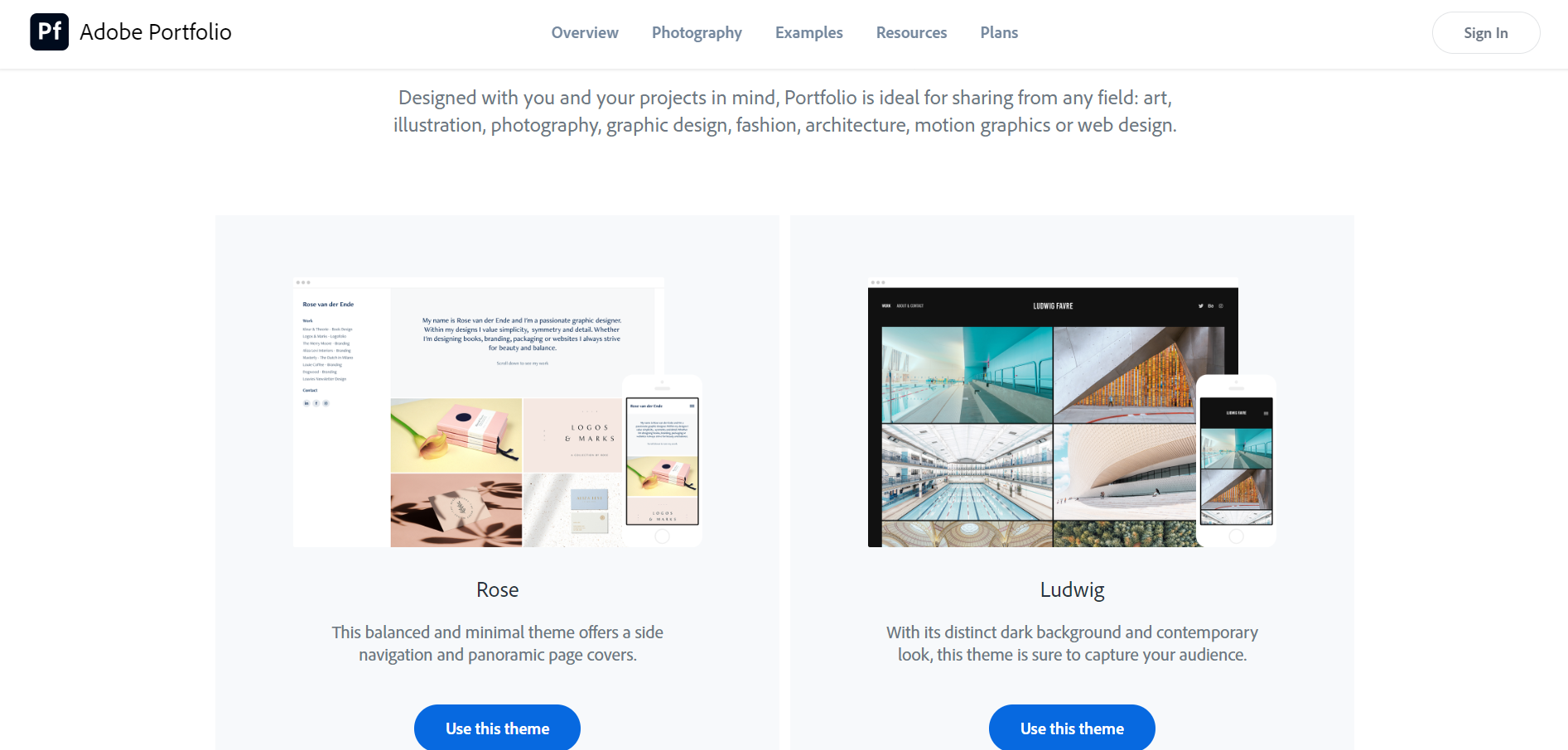
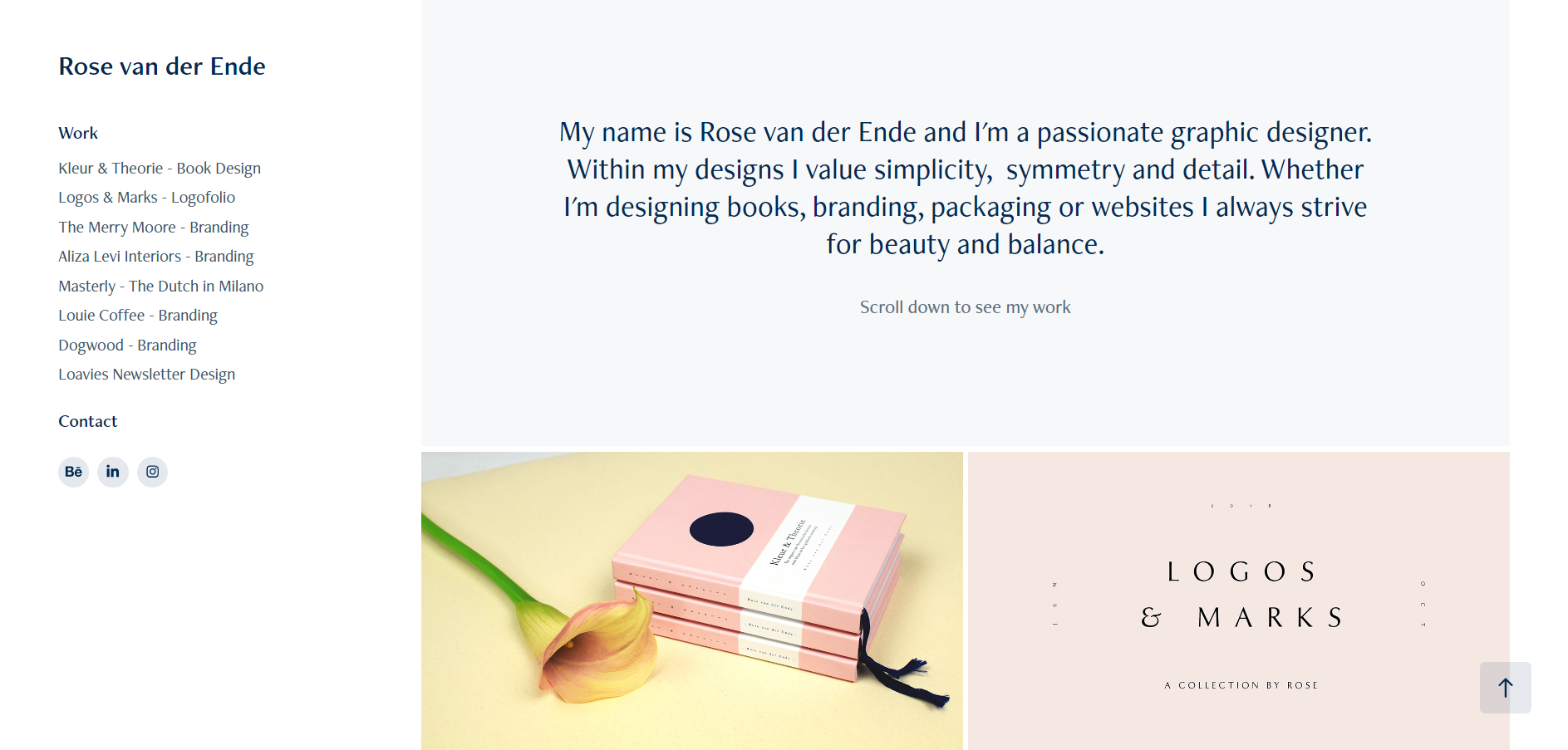
On the other hand, iPage offers a wide variety of templates and designs, catering to users with diverse needs and preferences. With hundreds of options available, users can easily find a template that suits their specific project or business requirements.
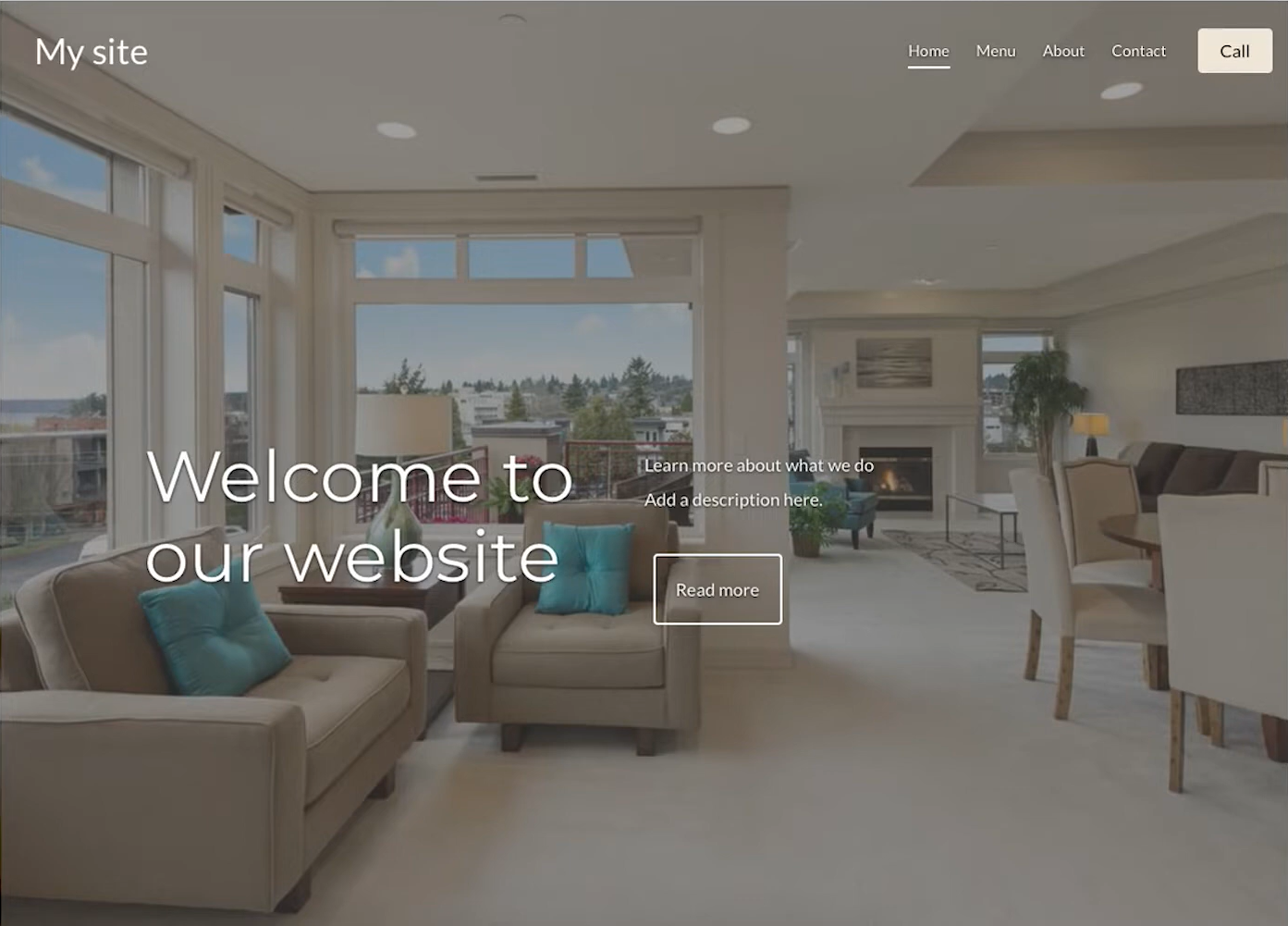
Get a head start on website creation with AI
Create a custom website tailored to your business needs 10X faster with 10Web AI Website Builder!
Ease of use
Ease of useReflects the platform’s overall user-friendliness.Score
Components:
- Learning curve (40%): Quickness and ease of getting started.
- Interface design (30%): Simplicity and intuitiveness of layout.
- User guidance (20%): Quality of tutorials and support.
- Flexibility (10%): Adaptability to various user skills.
 8.7
8.7
 7.6
7.6
🏆 Winner: Adobe Portfolio
. With a score of 8.7, Adobe Portfolio outperforms iPage, which scored 7.6. Adobe Portfolio’s user-friendly interface and integration with Adobe Creative Cloud make it an excellent choice for creative professionals. iPage, on the other hand, offers a simple and straightforward website building experience, making it a good option for individuals and small businesses.
Learning Resources
🏆 Winner: Adobe Portfolio
. Adobe Portfolio provides extensive and varied learning resources, including detailed tutorials and interactive guides. iPage also offers a variety of learning resources, including a comprehensive knowledge base and video tutorials. However, the availability of direct, personalized support might vary, depending on the plan a user subscribes to.
For ecommerce
EcommerceMeasures the platform’s effectiveness in supporting online business activities.Score Components:
- Ecommerce themes and templates (20%): Variety and design of templates.
- Product management (25%): Ease of managing and organizing products.
- Payment options (25%): Variety and convenience of payment methods.
- Ecommerce features (20%): Features for managing an ecommerce store.
- Integration (10%): Compatibility with external e-commerce tools and services.
 0.0
0.0
 5.7
5.7
Adobe Portfolio and iPage cater to different user needs when it comes to ecommerce. Adobe Portfolio, designed for creative professionals to showcase their work, does not offer ecommerce capabilities. On the other hand, iPage, a web hosting and site builder platform, provides a range of ecommerce features suitable for small to medium-sized businesses.

|

|
|
|---|---|---|
|
Ecommerce themes and templates |
0.0 |
5.5 |
|
Product page customization |
0.0 |
5.0 |
|
Payment processing and commissions |
0.0 |
6.0 |
|
POS capabilities |
0.0 |
3.0 |
|
Payment gateways |
0.0 |
6.5 |
|
Product numbers |
0.0 |
4.0 |
|
Additional ecommerce features |
0.0 |
5.5 |
Adobe Portfolio ecommerce features:
Adobe Portfolio does not have any ecommerce features.
iPage ecommerce features:
- Inventory Management and Tracking
- Coupon Codes and Promotions
- SEO Tools
- PayPal Integration
Ecommerce themes & templates
Adobe Portfolio does not have any ecommerce specific templates. In contrast, iPage offers a variety of ecommerce-specific templates designed to cater to online stores and businesses. These templates are integrated with features such as shopping carts, product catalogs, and payment processing options to facilitate online transactions. However, the exact number of ecommerce templates available can vary, and users might find some limitations in terms of customization and advanced ecommerce functionalities compared to specialized ecommerce platforms.
Product page customization
Adobe Portfolio does not have product page customization features. iPage’s website builder, however, offers a range of ecommerce product page customization options. Users can design their storefronts with various templates, adjust layouts, and incorporate multimedia elements like images and videos to showcase products. Users can also edit product descriptions, manage inventory, and set up different payment options. However, limitations may include less flexibility in advanced customization or coding for those who require unique, highly tailored functionalities beyond the provided templates and settings.
Payment processing
Adobe Portfolio does not have any payment processing capabilities. iPage, on the other hand, supports several payment options for eCommerce, including major gateways like PayPal, Stripe, and others, catering to a wide range of currencies and countries. iPage does not charge commissions for transactions, commissions are charged by the gateways themselves. While iPage offers flexibility in online payment processing, it does not explicitly mention integrated POS capabilities for in-person transactions. For billing and subscription payments, iPage accepts credit cards, PayPal, and check or money order, offering diverse payment methods for its users.
Website Editors
Website EditorsEvaluates the platforms’ website building and editing capabilities.Score Components:
- Customization tools (40%): Range and power of editing features.
- Editor usability (30%): User experience within the editor.
- Design flexibility (20%): Freedom in layout and design changes.
- Update and maintenance ease (10%): Simplicity of updating and maintaining the site.
 7.4
7.4
 6.8
6.8
🏆
Winner: Adobe Portfolio
. Adobe Portfolio, with a score of 7.4, offers a user-friendly website builder editor designed for creatives to showcase their work. It allows for the integration of high-quality images and videos, offers a variety of responsive templates tailored to different creative fields, and provides seamless Adobe Creative Cloud integration. However, it has a limited range of external integrations, widgets, and add-ons, focusing primarily on creating dynamic galleries and image collections.
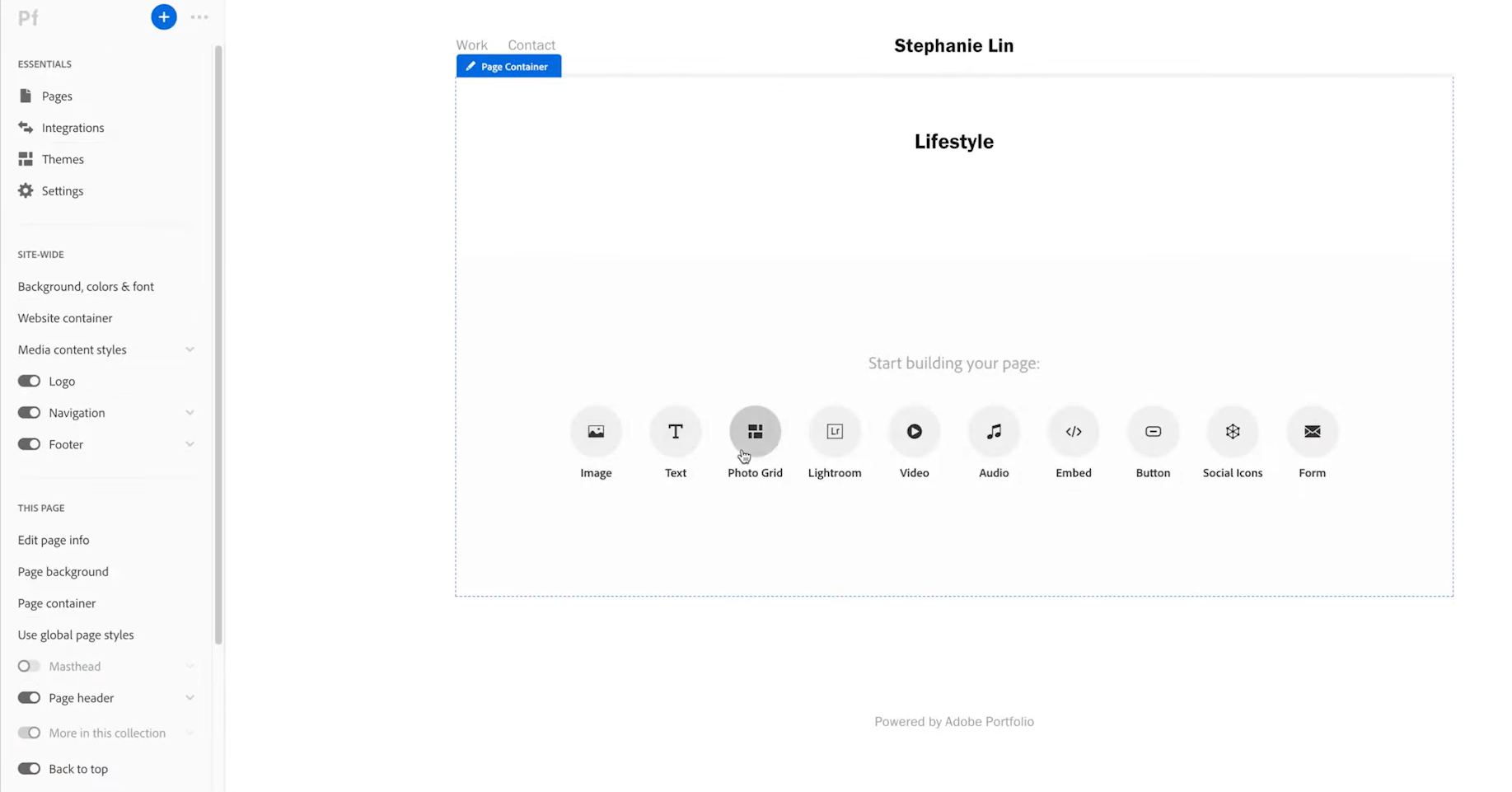
iPage’s editor, scoring 6.8, is designed for ease of use, catering to both beginners and those with some web design experience. It offers a drag-and-drop interface, allowing users to easily add, remove, and customize elements on their web pages without needing to code. However, compared to more sophisticated website builders, iPage might offer fewer features and less refined design capabilities.
Mobile editor/app
 0
0
 5.0
5.0
🏆
Winner: iPage
. Both Adobe Portfolio and iPage lack a dedicated mobile editor app. However, iPage allows users to edit their websites on a mobile browser, albeit with some limitations. This gives iPage an edge over Adobe Portfolio, which does not offer any mobile editing capabilities. Therefore, iPage is the winner in this category, providing users with the flexibility to make changes to their websites on the go.
Product testing options
Product Testing OptionsAssesses the options for trying out platform features before commitment.Score Components:
- Trial quality (40%): Extent and usefulness of the trial or free version.
- Feature accessibility (30%): How many features are available to test.
- Trial duration (20%): Length of the trial period.
- Ease of transition (10%): Smoothness of moving from trial to paid plans.
 7.6
7.6
 2.5
2.5
Overall Result
:
Adobe Portfolio wins
. Adobe Portfolio scores 7.6, offering a trial version that allows users to explore all features and even create a portfolio website. iPage scores lower at 2.5, with no free trial but a 30-day refundable period for testing all features.

|

|
|
|---|---|---|
|
Free Plan |
No | No |
|
Trial Duration |
Yes |
No |
|
Testing Premium Features |
Yes, during trial and 14-day refundable period |
Yes, during 30-day refundable period |
|
Money Back Guarantee |
14 days |
30 days |
Price
PriceLooks at the cost-effectiveness and value for money of each platform.Score Components:
- Plan value (40%): What each pricing tier offers.
- Transparency and clarity (30%): Clearness of pricing structures.
- Flexibility of plans (20%): Range of options to suit different budgets.
- Hidden costs (10%): Additional expenses not included in the plan.
 7.7
7.7
 7.3
7.3
Adobe Portfolio and iPage offer different pricing structures, with Adobe Portfolio focusing on creative professionals and iPage catering to a broader audience, including small businesses and personal projects.

|

|
|
|---|---|---|
|
$5-$20 |
Creative Cloud – Photography ($9.99/month): Up to 5 Portfolio sites with fonts from Adobe Fonts, and with access to Photoshop and Lightroom and 20GB storage. Value for price: 7.0 |
Basic ($15.99/month): Simple website or blog, 1 website, 10 GB SSD, free domain, managed WordPress, free SSL for 1st year. Value for price: 6.5 |
|
$20-$30 |
No offering at this amount. |
Choice Plus ($27.99/month): Multiple sites with storage, security, backups, 3 websites, 40 GB SSD, daily backups, domain privacy, malware scanning. Value for price: 7.5 |
|
$30-$34 |
No offering at this amount. |
Online Store ($32.99/month): Online selling with eCommerce tools, 3 websites, 40 GB SSD, store features like unlimited products and secure payments. Value for price: 8.0 |
|
$34+ |
Creative Cloud – All Apps ($59.99/month): Up to 5 Portfolio sites with the entire collection of Adobe creative apps, including Photoshop, Illustrator and InDesign, with 20 GB storage. Value for price: 8.5 |
Pro ($34.99/month): High traffic sites, advanced storage, 5 websites, 100 GB SSD, optimized for high traffic, enhanced security and backups. Value for Price: 9.0 |
location. As a result in rare cases the prices displayed here can differ from the ones you see on their
websites.
Hosting quality
Hosting
qualityExamines the reliability and performance of the hosting solutions.Score Components:
- Uptime (40%): Consistency and reliability of website availability.
- Speed (30%): Loading times and performance.
- Bandwidth and storage (20%): Sufficiency of resources provided.
- Data centers (10%): Quality and distribution of hosting infrastructure.
 7.0
7.0
 7.7
7.7
Winner: iPage
. iPage offers a range of affordable hosting services including shared, WordPress, and VPS hosting, with unlimited storage and bandwidth for various website needs. Adobe Portfolio, on the other hand, offers cloud hosting with a built-in domain and 20GB of cloud storage. However, iPage’s comprehensive hosting services and higher uptime give it a slight edge over Adobe Portfolio.

|

|
|
|---|---|---|
|
Do they offer hosting? |
Yes, including a built-in myportfolio.com domain and 20GB of cloud storage. | Yes, iPage offers a range of affordable hosting services including shared, WordPress, and VPS hosting, with unlimited storage and bandwidth for various website needs. |
|
Data Centers: |
3 globally: US, Ireland and Japan | 2 data centers: US, Europe |
|
Type of hosting: |
Cloud Hosting | Managed WordPress Hosting |
|
Uptime: |
Adobe Portfolio does not publish its uptime statistics, nor does it provide an uptime guarantee. However, it’s safe to assume that Adobe’s servers maintain a high level of uptime. | 99.9% |
|
Uptime Guarantee: |
No | No |
Website Speed Optimization
Website Speed OptimizationEvaluates optimization of website loading timesScore Components:
- PageSpeed Score (30%): Google’s score indicating performance optimization.
- Loading Time (30%): The average time until a website is fully interactive.
- Mobile Optimization (15%): Optimization effectiveness for mobile devices.
- Resource Optimization (15%): Optimizing images, scripts, and other heavy resources.
- CDN Usage (10%): Use of CDN to enhance speed across geolocations.
 6.2
6.2
 7.4
7.4
🏆 Winner: iPage
Both Adobe Portfolio and iPage prioritize website performance and page speed, but iPage has a higher Website Speed Optimization score and provides more detailed strategies for speed optimization.

|

|
|
|---|---|---|
|
Focus |
Image optimization, SEO and Meta Tag Configurations |
Web Server optimizations, Caching, CDN, Database optimization, SEO optimization |
|
Performance Tools |
Adobe Creative Cloud |
iPage’s own tools |
|
Key Strategies |
Image optimization, SEO and Meta Tag Configurations |
Web Server optimizations, Caching, CDN, Database optimization, SEO optimization |
|
Load Times |
Varies depending on design choices and content volume |
2.6s average |
|
Page Speed Scores Range |
Varies depending on design choices and content volume |
72/100 average |
|
Core Web Vitals Improvement |
No information disclosed |
LCP, FID, CLS improvements |
Adobe Portfolio, designed for creative professionals, focuses on image optimization and SEO and Meta Tag Configurations for speed optimization. The load times and PageSpeed scores vary depending on specific design choices and content volume. However, Adobe Portfolio’s emphasis on simple portfolio websites should ensure good loading times and Page Speed scores. Adobe Portfolio does not disclose any information about its Core Web Vitals improvements.
iPage, a user-friendly web hosting and site builder platform, offers a range of strategies for speed optimization, including Web Server optimizations, Caching, CDN, Database optimization, and SEO optimization. The average load time for iPage is 2.6s, and the average PageSpeed score is 72/100. iPage also focuses on improving Core Web Vitals, including LCP, FID, and CLS.
Get a head start on website creation with AI
Create a custom website tailored to your business needs 10X faster with 10Web AI Website Builder!
Plugins and integrations
Plugins and integrationsMeasures the range and effectiveness of additional plugins and integrations.Score Components:
- Variety of options (40%): Range of available add-ons.
- Integration smoothness (30%): Ease of integrating plugins into the site.
- Quality of plugins (20%): Functionality and reliability of the options.
- Custom integration capabilities (10%): Support for custom or third-party integrations.
 6.7
6.7
 6.3
6.3
🏆 Winner: Adobe Portfolio.
Adobe Portfolio scores 6.7, slightly ahead of iPage’s 6.3. Adobe Portfolio’s integrations are designed to enhance the user experience for creative professionals, allowing seamless sharing, updating, and showcasing of creative work. iPage, on the other hand, offers a variety of plugins and extensions, with options ranging from SEO tools to security enhancements. However, Adobe Portfolio’s integrations with Adobe services like Behance, Adobe Lightroom, Adobe Stock, and Adobe Fonts give it an edge over iPage.
Marketing Features
Design FunctionalitiesRepresents how well each platform allows for creative design and customization of websites.Score Components:
- Template Variety (30%): Range and quality of design templates.
- Customization (30%): Flexibility and options for design alterations.
- User Interface (20%): Ease and intuitiveness of the design process.
- Responsiveness (10%): Adaptability to different devices and screen sizes.
- Innovation (10%): Unique design features and tools.
 3.7
3.7
 7.2
7.2
🏆
Overall Winner: iPage
. iPage offers a more comprehensive set of marketing features, including SEO tools, email marketing, blogging, social media integration, analytics and reporting, and ads and promotions. Adobe Portfolio, while offering basic SEO tools and social media integration, lacks in email marketing, blogging, and ads and promotions.

|

|
|
|---|---|---|
|
SEO Tools |
Basic SEO features |
Comprehensive SEO features |
|
Email Marketing |
No |
Yes |
|
Blogging |
No |
Yes |
|
Social Media Integration |
Limited |
Integrated social media buttons and features |
|
Analytics and Reporting |
Users can use Google Analytics |
Option to integrate Google Analytics |
|
Ads and Promotions |
No |
Offers SEO, social media integration, email marketing, and promotional discounts |
Customer Support
Customer supportEvaluates the quality and availability of support options.Score Components:
- Response time (40%): Speed of support responses.
- Support quality (30%): Effectiveness and helpfulness of the support.
- Availability (20%): Range of support channels (phone, chat, email).
- Resource richness (10%): Quality of self-help and educational materials.
 7.3
7.3
 6.9
6.9
🏆 Winner: Adobe Portfolio
. Comparing Adobe Portfolio vs iPage, Adobe Portfolio takes the lead in this category with a customer support score of 7.3. Adobe Portfolio offers a comprehensive Knowledgebase and FAQ for self-service help, alongside live chat and phone support. This ensures that users have access to a variety of support options, although the emphasis is more on self-service.
iPage, with a customer support score of 6.9, provides 24/7 customer support through phone, email, and live chat. This round-the-clock availability ensures that users can receive help whenever they need it. However, iPage’s support is more general and may not be as specialized as Adobe Portfolio’s, which is tailored to creative professionals.
Security
SecurityLooks at the platforms’ security measures and data protection.Score Components:
- Data protection (40%): Safeguards for user and customer data.
- SSL and encryption (30%): Implementation of secure connections.
- Compliance (20%): Adherence to industry security standards.
- Regular updates (10%): Frequency of security updates and patches.
 8.1
8.1
 7.5
7.5
🏆
Winner: Adobe Portfolio
. Adobe Portfolio takes the lead in security with a score of 8.1, compared to iPage’s 7.5. Adobe Portfolio’s commitment to data privacy and security is evident in its comprehensive data protection measures, adherence to international data privacy frameworks, and proactive security strategies. It also offers basic security measures like SSL certificates and password protection for websites or specific pages.
iPage, on the other hand, also offers robust security measures including Domain Privacy Protection, SiteLock security suite, and SSL certificates. However, it falls slightly short in comparison to Adobe Portfolio’s extensive security measures and higher security score.
AI Capabilities
AI capabilitiesMeasures the effectiveness of AI-driven features and tools.Score Components:
- Automation efficiency (40%): Impact of AI on streamlining processes.
- Personalization (30%): AI-driven customization for users or customers.
- AI-Assisted design (20%): Role of AI in website design and functionality.
- Data analysis (10%): Use of AI in interpreting user data and analytics.
 0
0
 3.0
3.0

|

|
|
|---|---|---|
|
AI Builder |
|
Yes |
|
AI Ecommerce features |
|
|
|
AI content generation |
|
|
|
Additional AI features |
|
Yes |
🏆 Winner: iPage
. iPage, with a score of 3.0, offers a basic AI-powered website builder, which assists users in setting up their websites efficiently. However, it does not offer advanced AI content generation or sophisticated AI-driven design tools.
Adobe Portfolio, on the other hand, does not have any AI capabilities. It is a website builder specifically designed for creative professionals to showcase their work, but it does not utilize AI to enhance the user experience or functionality of the platform.
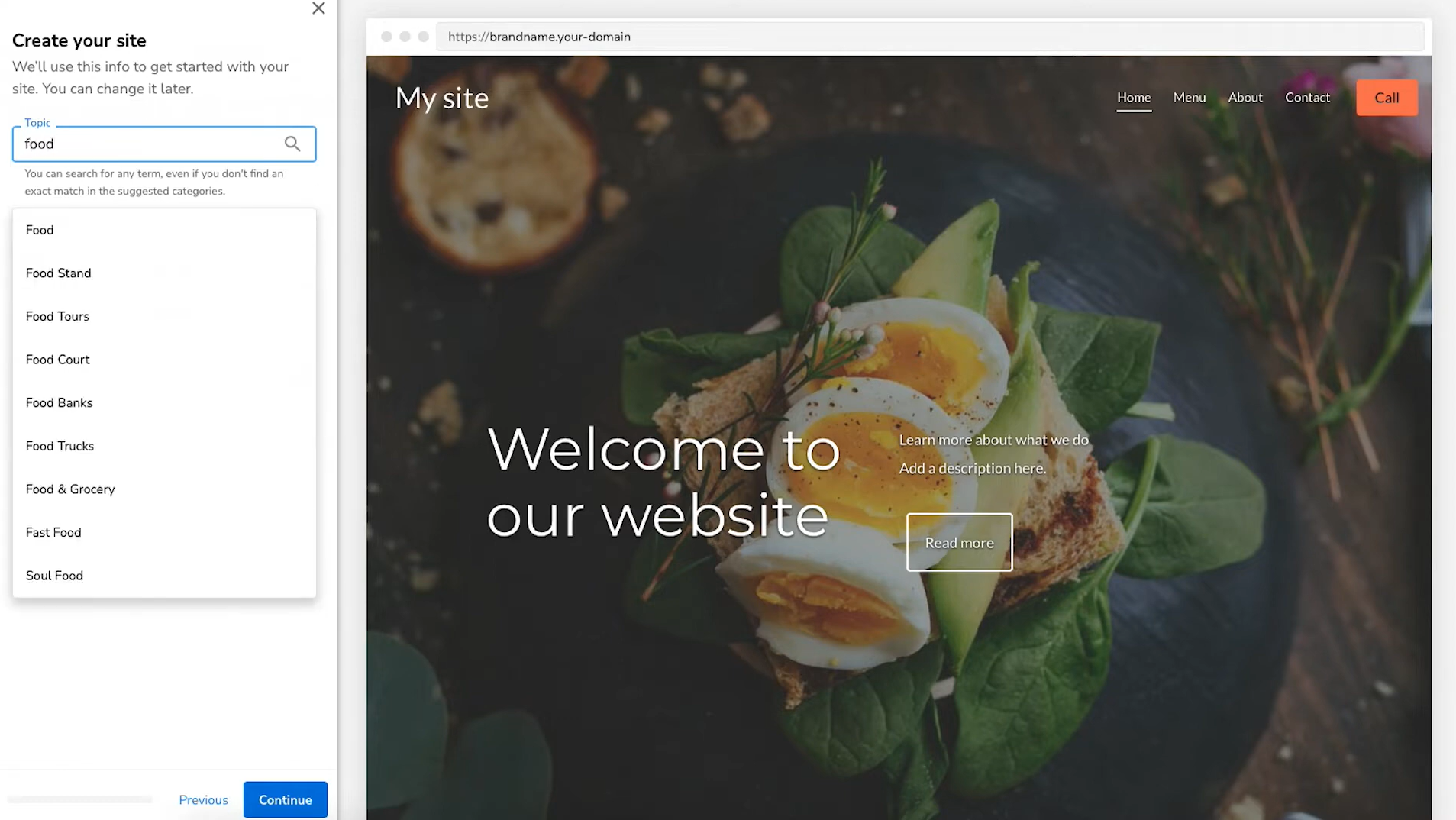
User Management
User ManagementAssesses the platforms’ capabilities in managing user roles, permissions, and accessibility.Score Components:
- Role Customization (40%): Flexibility in creating and defining user roles and
permissions. - Ease of Management (30%): User interface and tools for managing users.
- Access Control (20%): Effectiveness of access control measures for different user
levels. - Scalability (10%): Ability to manage a growing number of users efficiently.
 3.0
3.0
 3.2
3.2
🏆 Winner: iPage
. Both Adobe Portfolio and iPage have limited user management capabilities.
- Adobe Portfolio allows only one user to build and edit a website.
- iPage’s website builder offers very limited multi-user functionality and access levels compared to more sophisticated website builder platforms.
There is no information about user roles and access levels for both Adobe Portfolio and iPage.
Additional Features

|

|
|
|---|---|---|
|
SSL Certificate |
|
|
|
Custom Domain |
|
|
|
Free Custom Domain Included |
|
|
|
International Domains |
|
|
|
Mobile Responsive |
|
|
|
Page Speed |
|
|
|
Website Builder Mobile App |
|
|
|
Convert a Website To An App |
|
|
|
Website Analytics |
|
|
|
Multilingual Sites |
|
|
|
Multiple Users |
|
|
User Feedback
Adobe Portfolio is tailored for creative professionals such as photographers, graphic designers, and artists. Its integration with Adobe Creative Cloud and user-friendly interface make it an attractive option for those looking to showcase their work in a visually appealing manner without needing coding skills. This specialization likely leads to positive feedback from users within the creative industry who value design and ease of use.
iPage, on the other hand, targets small businesses and personal projects with its comprehensive web hosting and site builder services. The platform’s drag-and-drop builder and range of templates simplify website creation for users without technical expertise. Its recent partnership with Bluehost enhances its hosting capabilities, which likely contributes to favorable feedback from users seeking reliable hosting and straightforward website building solutions.
The making of this blog
We followed a clear, step-by-step process to write and research this article.
FAQ
Which platform is better for creative professionals, Adobe Portfolio or iPage?
Can I use iPage for ecommerce?
How do Adobe Portfolio and iPage compare in terms of website speed and hosting quality?
Which platform offers better customer support, Adobe Portfolio or iPage?
Are there any AI capabilities in Adobe Portfolio or iPage?
Which platform is more suitable for users with no technical expertise?







